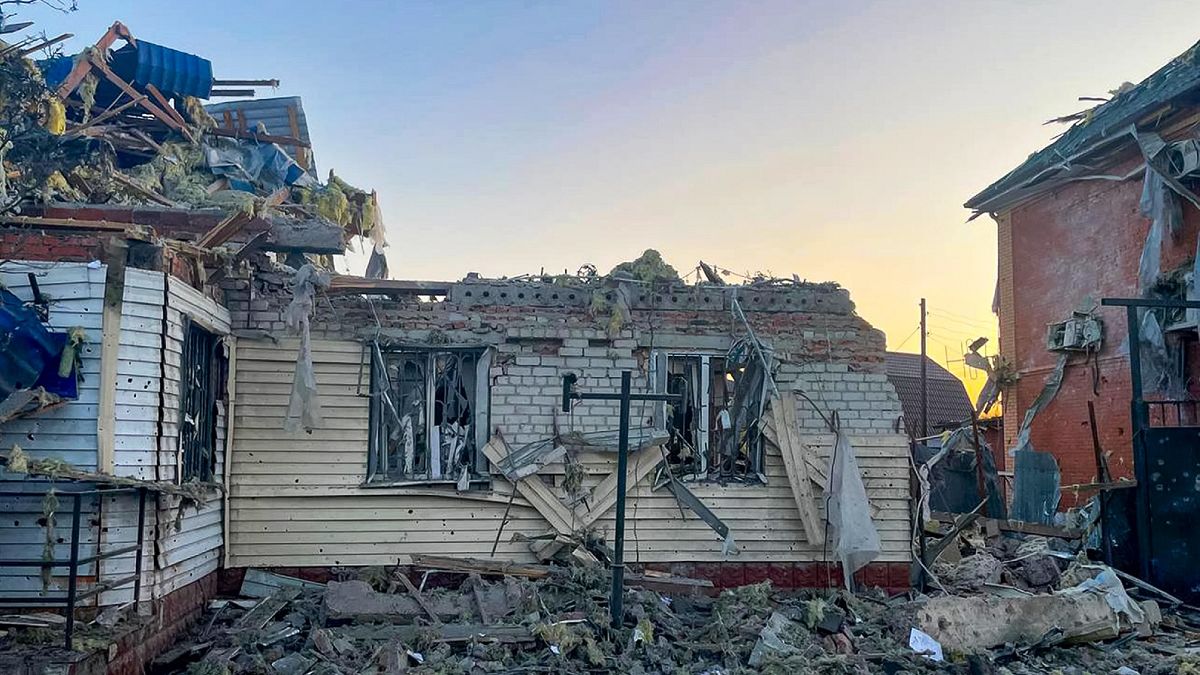Russia has labeled a Ukrainian incursion in the border oblast of Kursk as a “large-scale provocation”, with European Commission supporting Ukraine’s right to defend itself by attacking targets in Russia. According to Peter Stano, a spokesperson for the Commission, Ukraine is fighting a legitimate defensive war against illegal aggression, allowing them to hit the enemy wherever necessary. The incursion involved hundreds of Ukrainian soldiers in Kursk, resulting in multiple civilian casualties reported by Russian authorities. President Vladimir Putin called the attack a “large-scale provocation” aimed at weakening Russia’s offensive in Donetsk.
Despite Russia’s claims, the European Commission reiterated its support for Ukraine’s legitimate self-defense against aggression. The EU has provided significant support to Ukraine, totaling almost €108 billion, and implemented 14 packages of sanctions against Russia to limit its resources for waging war. The conflict between Ukraine and Russia has prompted responses from both sides, with Russia condemning the incursion as a terrorist act and calling out the West for remaining silent. However, the EU remains steadfast in its support for Ukraine and its efforts to defend itself from Russian aggression.
The situation in Kursk highlights the ongoing conflict between Ukraine and Russia, with tensions escalating and leading to cross-border incursions. The European Commission’s statement emphasizes Ukraine’s right to defend itself by any means necessary, including targeting enemy territories. The conflict has resulted in significant civilian casualties and drawn international attention to the ongoing crisis in the region. Russia’s response to the incursion underscores the challenges of navigating the complex geopolitical landscape in Eastern Europe.
President Putin’s characterization of the incursion as a “large-scale provocation” suggests a strategic move by Ukraine to draw Russian forces away from Donetsk. The conflict between the two countries has been ongoing since February 2022, with the EU providing extensive support to Ukraine in various forms. The EU’s commitment to assisting Ukraine in its defense against Russian aggression demonstrates a unified stance against the occupation and war in the region. The situation in Kursk serves as a reminder of the complexities of the conflict and the need for international cooperation to resolve the crisis.
The EU’s financial, political, humanitarian, diplomatic, and military support for Ukraine reflects a united front against Russian aggression in the region. The sanctions imposed on Russia by the EU have targeted key resources and technologies needed for the war effort, demonstrating a commitment to curtailing Russian capabilities. The conflict in Kursk and its aftermath underscore the challenges of navigating the complex relationships and power dynamics in Eastern Europe. The EU’s ongoing support for Ukraine reinforces the importance of international solidarity in addressing the crisis and seeking a peaceful resolution.
In conclusion, the incursion in Kursk and the response from both Ukraine and Russia highlight the ongoing conflict in the region and the need for international support and cooperation. The EU’s firm stance in supporting Ukraine’s right to defend itself against Russian aggression sets a precedent for addressing the crisis. The situation in Kursk underscores the complexities of the conflict and the challenges of finding a peaceful resolution. By providing extensive support to Ukraine and imposing sanctions on Russia, the EU is taking concrete steps to address the crisis and work towards a peaceful resolution in Eastern Europe.











